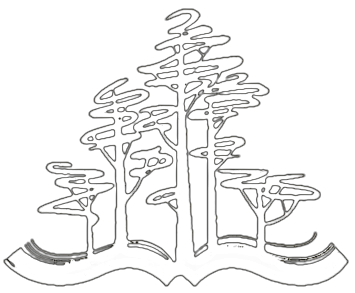Summer School on the Russian Literature. 2022.
Vol. 18. № 3-4
The article is considered to analysis of the first reviews for the Vladimir Solovyov’s article „Sud’ba Pushkina“ (The fate of Pushkin) and finding stable motifs and images in its reception. Based on the presented analysis, we built a picture of the perception of Pushkin’s figure in the 90s of the XIX century, on the eve of the Pushkin jubilee of 1899.
Keywords: Vladimir Solovyov, A. Pushkin, Vladimir Spasovich, literary criticism, 19th century Pushkin studies.
Keywords: Vladimir Solovyov, A. Pushkin, Vladimir Spasovich, literary criticism, 19th century Pushkin studies.
Angelina Balabaeva
„The Honourable Member of the New Court of Honour“: The First Newspaper and Magazine Reactions to V. S. Solovyov’s Article „Sud’ba Pushkina“
The article study the history of collecting and publishing Pushkin’s criticism in the first two decades after his death. Particular attention is paid to the experience of the so-called „posthumous“ edition (1838) and its additional volumes (1841), which were perceived by contemporaries as unsuccessful. Reviews and additions by authoritative journalists, who are not indifferent to the fate of Pushkin’s heritage, served as an impetus for the subsequent study of Pushkin’s critical prose corpus.
Keywords: A. S. Pushkin, criticism, textology.
Keywords: A. S. Pushkin, criticism, textology.
Aleksey Balakin
The Initial Stage of the Formation of the Corpus of Pushkin’s Critical Prose
The article considers the subject of sources of some plots in Daniil Kharms’ notebooks. As sources, in particular, the book by J. B. Salgues about prejudices, in which the superstitions of antiquity are recounted and we saw their explanations. At the same time, the article demonstrates how Kharms transformed these plots in his works.
Keywords: Daniil Kharms, abbot Rousseau, J. B. Salgues, toad lizard owl superstition.
Keywords: Daniil Kharms, abbot Rousseau, J. B. Salgues, toad lizard owl superstition.
Alexander Kobrinsky
To the Sources of Daniil Kharms’ Notebooks
The Look of the Toad, the Appearance of the Owl, the Tail of the Lizard in the Shoe
The Look of the Toad, the Appearance of the Owl, the Tail of the Lizard in the Shoe
The article is devoted to the analysis of the specifics of spatio-temporal relations in the book of essays by B. Zaitsev „Athos“. The cycle-forming function of the chronotope and the genre-stylistic uniqueness of the cycle associated with it are considered. The conclusion is made about the complex ideological and philosophical subtext of the book, which becomes clear only with its holistic perception.
Keywords: B. Zaitsev, Athos, chronotope, space, time.
Keywords: B. Zaitsev, Athos, chronotope, space, time.
Alena Yudnikova
Chronotope as a Factor of Cyclization in the Book of Essays „Athos“ by B. K. Zaitsev
The article is an overview of the main source study problems of research the biography and works of A. F. Voeikov. There is no complete list of his literary works and a bibliography of works dedicated to him. There are problems of text attribution. It is unknown where some archival materials are located. One of the most accessible source resources is the memoirs of contemporaries about Voeikov. They are written mainly by his literary opponents. And they need to be thoroughly examined and commented on. We paid special attention to the problems of attribution and found out which works were written by Voeikov in the newspaper Literary Supplement to Russian Invalid.
Keywords: A. F. Voeikov, source study problems, attribution problems, memoir literature, archival searches
Keywords: A. F. Voeikov, source study problems, attribution problems, memoir literature, archival searches
Dinara Nikitina
The Source Study Problems of Research the Biography and Creative Works of A. F. Voeikov
The interpretation of the lyrical novel by A. G. Bitov „Georgian Album“ (1970–1983) is focused on the identifying the Sternian tradition in the creating of the image of the hero: not only the typological similarity of the novel to the novels of L. Sterne is proved, but also the influence of his characters on the methods of author’s self-presentation (the sensual contact with the foreign world, the spontaneity of the emotional reaction to reality, the aspiration for personal and genuine understanding in lyrical reflection). The image of the hero of the modern novel discovers a multidimensional perception of the world, an exit to existential problems and a skeptical assessment of the possibilities of understanding the world and embodying the picture of the world in the text (development of Sternian irony). At the same time, a fundamental difference between poetics is fixed, which manifests itself in the rapprochement of the hero and the narrator with the author, in the deepening the aspects of reflection (from psychological, culturological to ontological), in the intensification of the fragmentation of the text (the reduction of fabulousness and the counterpoint of various lyrical and philosophical themes).
Keywords: A. G. Bitov, L. Sterne, Georgian Album, lyrical novel, sentimental journey, the plot of the creation of the text.
Keywords: A. G. Bitov, L. Sterne, Georgian Album, lyrical novel, sentimental journey, the plot of the creation of the text.
Ekaterina Bukhanova
Transformation of the Sternian Hero in the A. G. Bitov‘s Lyrical Novel „Georgian Album“
The article discusses the use of the pronoun „I“ in Nikolai Dobroliubov’s critical reviews. The study points out the connection between various forms of self-narration and the way the author understands the literary name and the role of the critic; it is also suggested why Dobroliubov was interested in the explication of the narrator’s personality.
Keywords: Nikolai Dobroliubov, „Sovremennik“, techniques of writing, author’s name, critic’s role, feuilleton.
Keywords: Nikolai Dobroliubov, „Sovremennik“, techniques of writing, author’s name, critic’s role, feuilleton.
Ekaterina Vozhik
„Willing to Stand Up“: „I“ in Nikolai Dobroliubov’s articles
„Willing to Stand Up“: „I“ in Nikolai Dobroliubov’s articles
The book of I. A. Bunin’s „Temple of the Sun“, according to the general opinion of researchers, is interpreted as acolonial and anational. Researchers note that Bunin’s text is not similar to the traditional Russian travelogues of the era about the East, where there is always a classical opposition to the Oriental binary: (correct, strong, cultured) I vs. (weak, uncultured, barbaric) Other. However, this opinion is due to the fact that the researchers read and interpreted the latest edition of the „Temple of the Sun“ in 1936 (later, this version of the text was reprinted in all Soviet and post-Soviet Bunin’s collected works). When comparing pre-revolutionary (1915, 1917) and emigrant (1931, 1936) editions of the book, it becomes obvious that this opinion is erroneous and Bunin’s contemporaries read a different text containing anti-national and colonial discourses, and in the emigre editions a huge part of the text was deleted or rewritten on the example of the essay „Shadow of a Bird“.
Keywords: I. A. Bunin, „Temple of the Sun“, „Shadow of the Bird“, national, colonial, discourse.
Keywords: I. A. Bunin, „Temple of the Sun“, „Shadow of the Bird“, national, colonial, discourse.
Maksim Shavlinsky
Disappearance of national and colonial discourses
Textual criticism of the essay „Shadow of the Bird“ by I. A. Bunin
Disappearance of national and colonial discourses
Textual criticism of the essay „Shadow of the Bird“ by I. A. Bunin
The article examines (on the example of Chekhov’s stories) the financial situation of doctors in the Russian Empire of the end of XIX century. A comparative analysis of the incomes of different heroes belonging to the same profession is carried out. The reflection of socio-economic realities in Chekhov’s artistic work is traced.
Keywords: money, A. P. Chekhov, financial situation, medical intelligentsia of the XIX century, commentary.
Keywords: money, A. P. Chekhov, financial situation, medical intelligentsia of the XIX century, commentary.
Elvira Prigunkova
Money in the Art World of A. P. Chekhov
(On the Example of Stories About Doctors of fhe 1880s–1890s)
(On the Example of Stories About Doctors of fhe 1880s–1890s)
Contacts
summerschool@list.ru
В оформлении сайта использованы материалы Freepik.


